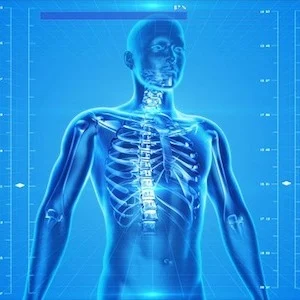Medical imaging, suicide prevention, and acute stroke care are among the new AI applications included in this year's Partners HealthCare "Disruptive Dozen”. The fifth annual list features the 12 emerging artificial intelligence (AI) technologies projected to greatly impact healthcare in the next year.
You might also like: Healthcare C-suite on top sector disruptors
The 2019 Partners HealthCare Disruptive Dozen was announced at the World Medical Innovation Forum held in Boston to examine AI in clinical care including a range of diseases and health system opportunities.
1. Reimagining medical imaging – Improvements in diagnoses and treatment are expected as AI: (i) transforms mammography from one-size-fits-all to a more targeted tool for assessing breast cancer risk; and (ii) further increases utility for ultrasound for disease detection and rapid acquisition of clinical-grade images.
2. Better prediction of suicide risk – AI is proving powerful in helping identify patients at risk of suicide (based on EHR data) and also examining social media content with the goal of detecting early warning signs of suicide. Such risk prediction models could alert physicians, mental health professionals and family members when someone in their care needs help.
3. Streamlining diagnosis – A new era of AI-enabled disease diagnosis means the ability to identify abnormal and potentially life-threatening findings in medical imaging and to screen pathology cases according to the presence of urgent findings such as cancer cells, enabling early and appropriate treatment.
4. Automated malaria detection – Nearly half a million people succumbed to malaria in 2017, with the majority being children under five. Deep learning technologies are helping automate malaria diagnosis, with software to detect and quantify malaria parasites with 90 percent accuracy and specificity, resulting in more accurate and timely diagnoses and could enable better monitoring of treatment efficacy.
5. A window on the brain – AI is automating the manual and painstaking analysis of EEGs and other high-frequency wave forms, allowing clinicians to rapidly detect electrical abnormalities that signal trouble. Deep learning algorithms based on terabytes of EEG data are helping to automatically detect seizures in the critically ill, regardless of the underlying cause of illness.
6. “A-Eye”: Artificial Intelligence for eye health and disease – Not only is AI helping advance new approaches in ophthalmology, it’s also enhancing primary care with speciality level diagnostics. In 2018, the FDA approved a new AI-based system for the detection of diabetic retinopathy, marking the first fully automated, AI-based diagnostic tool approved for market in the U.S. that does not require additional expert review.
7. Lighting a “FHIR” under health information exchange – The Fast Healthcare Interoperability Resources (FHIR) has become the de facto standard for sharing medical and other health-related information. With its web-based approach to data exchange, FHIR promises to give patients unfettered access to their own health information – allowing them to decide what they want to share and with whom and demanding careful consideration of data privacy and security.
8. Reducing the burden of healthcare administration – In the U.S., more than 25% of healthcare expenditures are due to administrative costs, far surpassing all other developed nations. Using AI to automate medical coding and billing will help reduce the number of mistakes (from the manual process) and minimise the need for intense regulatory oversight.
9. A revolution in acute stroke care – Stroke is a major cause of death and a significant source of healthcare spending. AI tools to help automate the diagnostic journey of ischaemic stroke can help determine whether there is bleeding within the brain – a crucial early insight that helps doctors select the proper treatment.
10. The hidden signs of intimate partner violence (IPV) – An AI-based system can help alert clinicians if a patient’s injuries likely stem from IPV. Through an AI-enabled system, researchers hope to help break the silence that surrounds IPV by empowering clinicians with powerful, data-driven tools. Healthcare providers are optimistic that AI tools will further complement their role as a trusted source for divulging abuse.
11. Voice-first technology comes to healthcare – AI-powered, voice-first technology will help clinicians provide more of what matters: quality time with patients. Voice assistants are being explored for reducing physicians’ data entry burdens. Tech companies are developing applications that can run on consumer-grade voice technology platforms while complying with the Health Insurance Portability and Accountability Act, or HIPAA.
12. Narrowing the gaps in mental healthcare – In the U.S., nearly one in five adults grapples with a mental disorder, and opioid addiction and misuse claim the lives of more than 130 adults every day. Developers are trying to integrate rigorously validated mental health methods into smartphone apps. One AI app under development is for patients with opioid, alcohol, and other forms of drug addiction with co-occurring mental illness. The app provides patients with a virtual form of integrated group therapy (IGT), which is effective in teaching behaviours and skills to manage recovery and prevent relapse.
Source:
Partners HealthCare
Image credit: Pixabay






